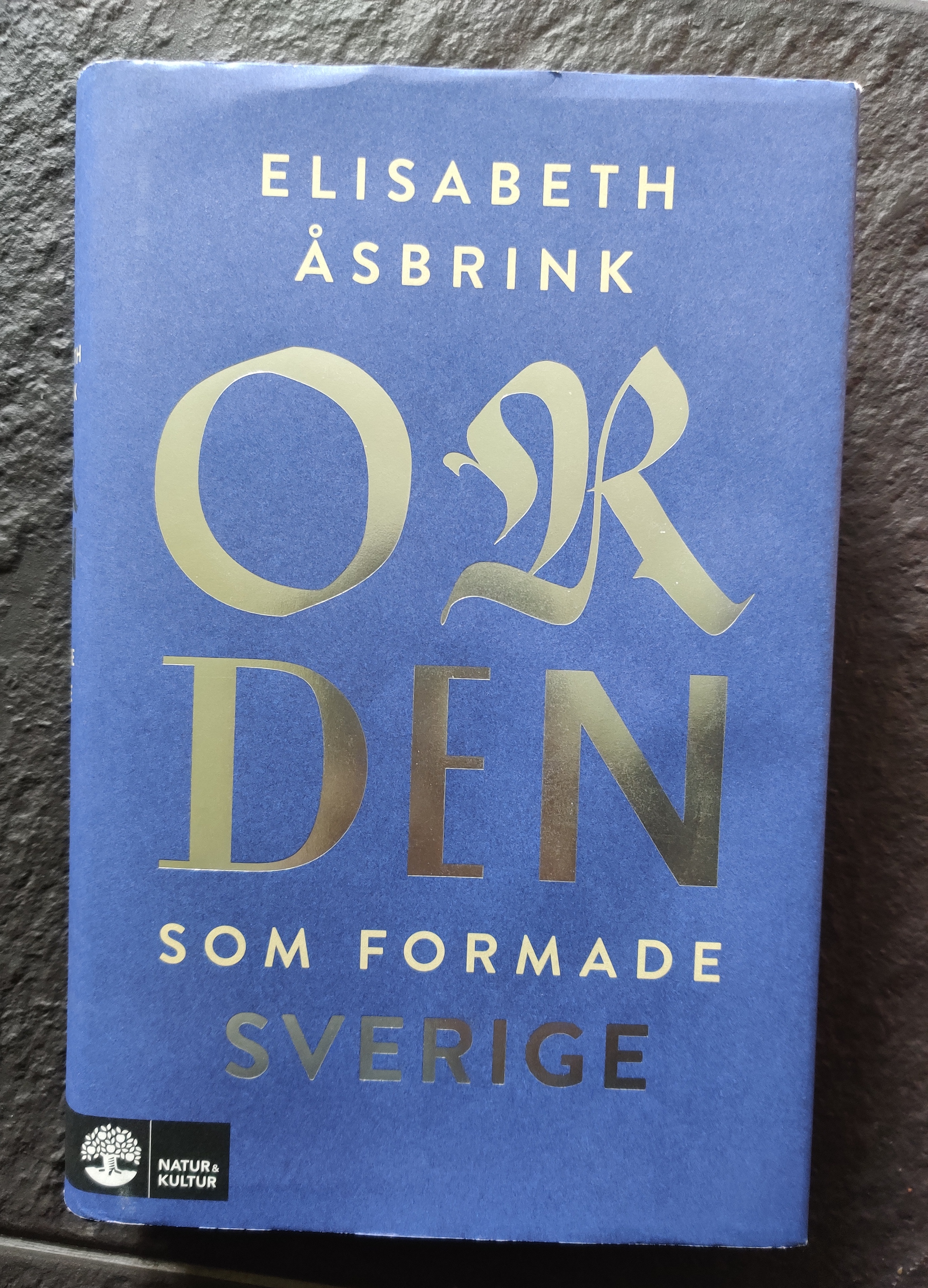Orden som formade Sverige by Elisabeth Åsbrink

This beautiful book paints a Swedish identity chapter by chapter, starting in year 98 (not 1998, just 98) and going through history, politics, and culture all the way to 2017. This is how the author herself explains the reasons behind writing the book in the preface:
Jag skrev den här boken för att det roade mig. För att det oroade mig. För att jag är född i Sverige. För att mina föräldrar inte är födda i Sverige. […] För att det finns något som kallas identitetskris men inget som kallas identitetseufori.
It is indeed a special position to be in: growing up in a country since birth but having two parents from two other cultures to provide a perspective on what otherwise would be perceived as the obvious, the default, the “of course everyone does it this way”.
The tone of the book is sometimes poetic:
Svioner, sweonas, suehans, suetidi, sueones, sviar… Orden ligger som mynt i botten av en brunn och glimtar till när någon behöver skriva en berättelse som har en början, en mitt och ett slut.
…but it doesn’t stay in that mode all the time — the majority of the text is facts, and sometimes loving but sarcastic comments. Where do the Swedish values come from? What are they? Does Sweden actually live according to them?
A handful of the things I learned from the book follow.
The fourth chapter (p.24) is titled “Den svenska avundsjukan”. Apparently, envy has been so established as a Swedish character trait that an encyclopedia for children published in 1803 highlighted it. A taste for luxury and strong drinks was also mentioned.
Skåne used to be fought over due to having an abundance of herring, and herring being very popular during the 40 days of catholic fasting.
Hate towards the Danish people was engineered by propaganda to unite the various parts of Sweden back in the middle of 1400s and agitate them for war.
The Stockholm bloodbath was a great illustration of Swedish neutrality’s mechanics.
“Den blomstertid nu kommer” is Sweden’s favorite psalm.
In 2015, over two thousand Swedes with a cancer diagnosis were asked how they handle it. 68% turned to nature, and only 14% to church.
Swedes had trouble warming up to potatoes as food despite many people trying to popularize it, but when Eva Ekeblad figured out how to make snaps out of it, they turned around. She was the first woman to be selected for the Royal Scientific Academy (if I’m translating Kungliga Vetenskapsakademien right). That was in the middle of 1700s.
Jantelagen got inspiration from prescriptions for recovering alcoholics. The main difference is that in the original it all ended with “when you’re drinking”. So, “Du ska inte tro att du är något när du dricker”.
Sweden was the last one of the Nordics to give women the right to vote.
Between 1935 and 1975, 62888 people were sterilized in Sweden for racial, social or medical reasons, 90% of them women. It was social democrats who passed the law. Likewise in Denmark and Norway. In those two countries it was the political right that protested. In Sweden nobody did.
A lot of the “natural” order in Sweden comes from Axel Oxenstierna. He established Svea court of appeal. Suggested every city has a bank. Convinced the king to give a huge donation to Uppsala university. Donated himself to found the first gymnasium. Started with the national registration. Introduced a punishment of eight days in jail for late mail. Created strict hierarchy in the state institutions. Basically did everything that led to personnummer today. The guideline that urges all incoming requests to be handled by the state in a knowledgeable manner without unnecessary delays is now written into the law, and it came from him too.
Back in 1864 the Swedish law equated homosexual relations with zoophilia and punished both by two years of hard labor. The curious bit is that the law was articulated in a gender-neutral way, which made Sweden one of the very few countries were sexual relations between women were illegal.
In 1970, Grupp 8 was fighting for shorter working day, more day care (5% of children of preschool age were in care), the right for abortion and for pain relief during childbirth.
#metoo is kinda complicated in Sweden.
Language-wise, this one is definitely on the advanced level. There are fancy words, there are ancient words, there are cultural references, there’s everything. But if you manage to read through, you’ll know a whole bunch of references important for the Swedish society, and since the chapters are short and pretty independent of each other, it can’t hurt to try. There are also eleven pages of references if you want to dig deeper.
★★★★☆
(344 pages, ISBN: 9789127156319, Worldcat, Open Library)
There is no comments section, but if you'd like to give feedback or ask questions about this post, please contact me.